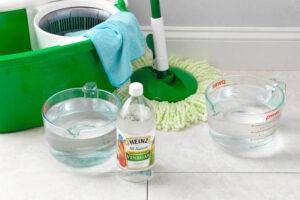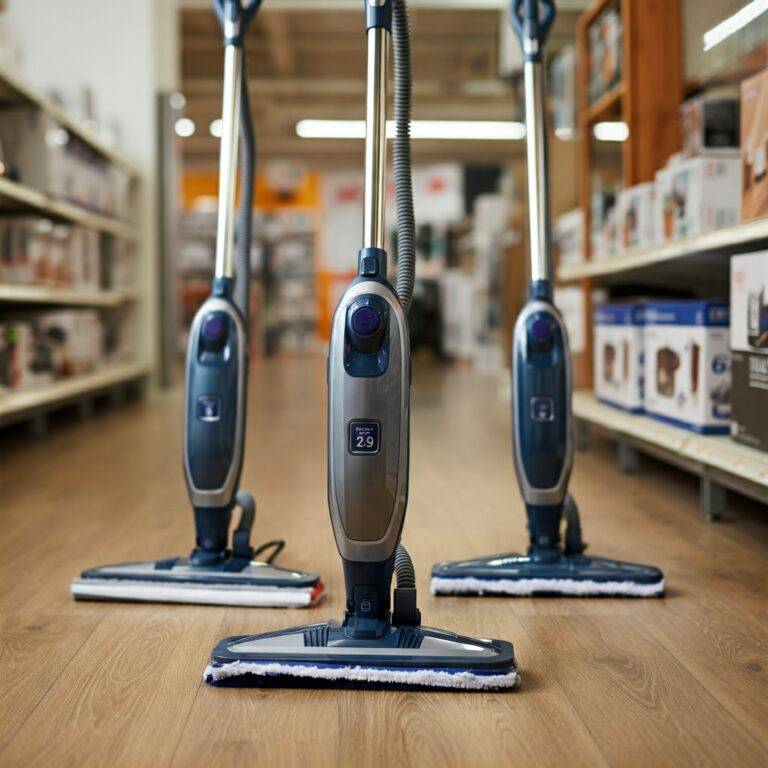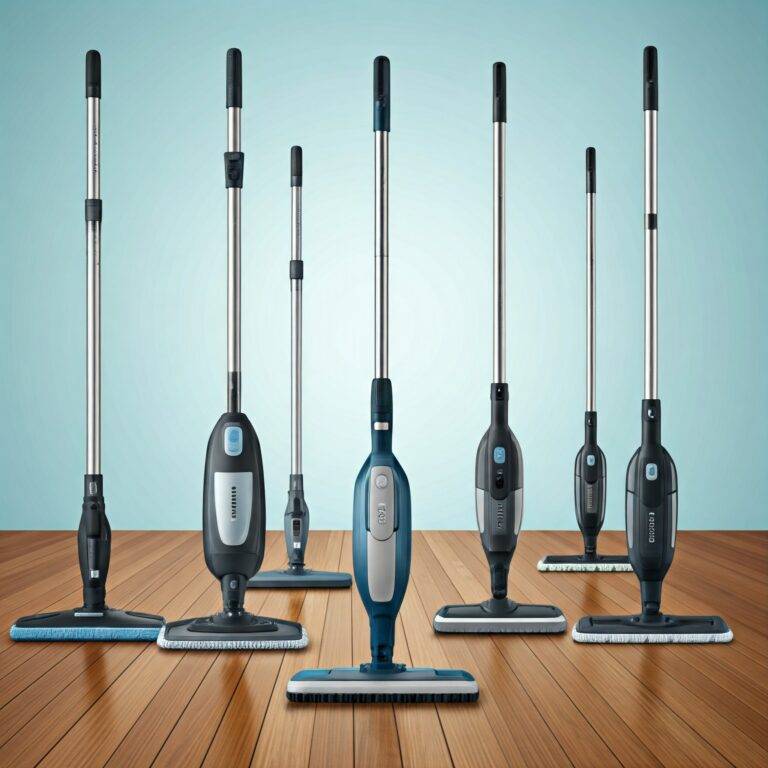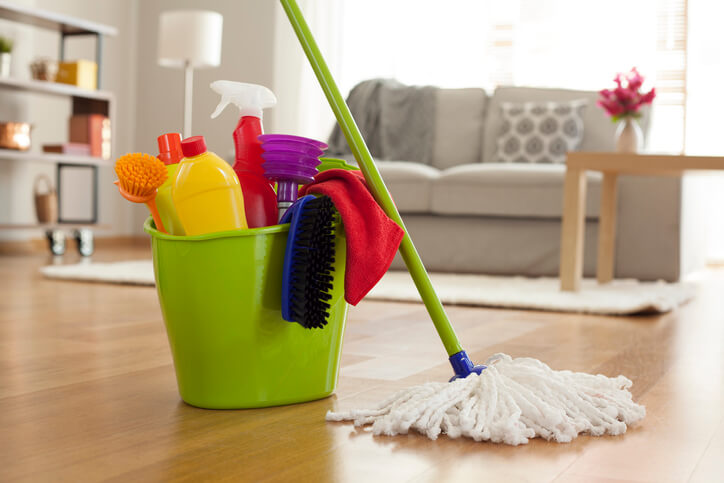Cleaning hardwood floors is essential for maintaining their beauty and longevity. With proper hardwood floor care, you can avoid scratches, stains, and warping that can detract from their natural appeal. Regular cleaning not only preserves the surface quality but also enhances the ambiance of your home. For optimal maintenance, it’s recommended to vacuum hardwood floors once a week, using the appropriate settings to prevent damage from scratches and dirt1. Additionally, keeping floors clean benefits from a well-planned routine; areas with higher foot traffic may require cleaning every week or two1. Ensuring a successful cleaning regimen involves the right tools and techniques, as improper care can lead to costly repairs or replacements. In fact, standing water can significantly damage wood floors, so it’s crucial to avoid excessive moisture during the cleaning process2. Not only does regular upkeep contribute to hardwood floor maintenance, but it also ensures a welcoming environment in your living spaces.

Understanding Hardwood Floors
When it comes to hardwood flooring, understanding the different types of hardwood is crucial for proper care and maintenance. Solid hardwood, engineered wood, and laminate flooring each have unique characteristics that affect their durability and cleaning methods. The specific wood types, such as oak, cherry, and maple, not only influence the appearance but also determine how to maintain the floors effectively.
According to the National Wood Flooring Association, using vinegar is ill-advised for cleaning hardwood floors due to its acidic nature, which can degrade the finish and leave a dull appearance3. For homeowners, regular cleaning involves using water-based pH-balanced cleaners, particularly for damp mopping, to avoid damaging the floor’s finish3. Regular sweeping or vacuuming helps eliminate dirt build-up, ensuring the longevity of hardwood surfaces3.
Experts recommend a DIY cleaner made of warm water and a few drops of Murphy Oil Soap, which can be effective without harming the wood4. While some suggest using essential oil-based cleaners for fragrance, debates exist about using homemade solutions like water and white vinegar, as they could dull the surface over time4. It’s essential to avoid chlorine bleach and harsh chemicals on hardwood floors, as they can weaken the wood structure and create hazing4.
Establishing a shoes-off policy in the home can significantly contribute to maintaining clean hardwood floors3. Further protective measures include placing area rugs and doormats in high traffic areas, which help keep debris at bay and reduce wear on the flooring3. Understanding hardwood types and their care requirements enables homeowners to preserve their beauty and durability for years to come.
Essential Tools for Cleaning
Cleaning tools for hardwood floors play a crucial role in maintaining their beauty and longevity. Start with a vacuum cleaner designed specifically for hardwood to remove dirt without scratching surfaces. A well-suited vacuum may include attachments that won’t harm your flooring, so always check the specifications. For regular maintenance, microfiber mops are essential tools, trapping dust and debris effectively. Consider investing in the Bona Hardwood Floor Premium Spray Mop, which weighs 5.8 pounds and features a 49-inch handle for easy maneuverability. This spray mop costs around $42 at Amazon and $33 at Walmart56.
Natural dish soap mixed with warm water makes an effective cleaning solution, steering clear of harsh chemicals that can damage your hardwood floor. Combine this with a high-quality bucket for easy application. The O-Cedar EasyWring RinseClean Microfiber Spin Mop & Bucket, priced at approximately $50 at Amazon, is ideal for this purpose, as it allows you to rinse and clean effortlessly. By ensuring you have the right hardwood floor cleaning supplies, you will make your cleaning routine efficient and enjoyable. Use these essential tools to protect your investment and keep your hardwood floors sparkling clean while adhering to best cleaning practices5.
Regular Maintenance Best Practices
Regular upkeep is essential for maintaining the beauty and integrity of hardwood floors. Cleaning routines should include daily sweeping or at least weekly vacuuming to remove dust, dirt, and grit that can cause scratches and dull finishes over time78. Using a large flat-head mop with a microfiber cloth pad can aid in effective cleaning without damaging the surface7. It is advisable to use manufacturer-approved cleaners diluted in water to avoid using excessive water or harsh chemicals, which can harm hardwood materials8.
Experts recommend establishing a routine for dust mopping and cleaning high-traffic areas at least biweekly. Entering mats can minimize dirt tracked onto the floor, providing a proactive approach to hardwood floor maintenance8. It’s important to take care when dealing with spills; promptly wiping up water, ink, and other liquids helps prevent warping and staining7.
In addition, placing felt pads under furniture legs helps shield floors from scratches, while area rugs or mats in busy zones can significantly reduce wear and tear8. With careful attention to regular upkeep, the longevity of your hardwood floors can be greatly enhanced, preserving their natural beauty for years to come.

Deep Cleaning Techniques
Deep cleaning hardwood floors is essential to maintain their beauty and longevity. Routine cleaning, which often includes vacuuming up dust or dirt, falls short against heavy dirt buildup and grime, thereby necessitating deeper cleaning techniques to avoid wear and tear on the flooring9. It is advisable to perform intensive floor care about once or twice a year to effectively remove embedded dirt and restore the wood’s natural shine10. Using a damp mop is favored by cleaning professionals, as it effectively cleans without bringing excess moisture into contact with the floors11.
When preparing for a deep clean, consider using high-quality microfiber mops and gentle cleaning solutions. Homemade cleaners, such as a mixture of vinegar and water in a 50/50 dilution, can effectively cut through grime without damaging the finish9. Avoiding steam cleaners is crucial, as excessive moisture can harm hardwood floors over time9 and professional recommendations suggest utilizing suitable cleaning pads designed for delicate surfaces10. It is vital to spot-test any new floor cleaning products to ensure compatibility with your finish9.
For seasonal deep cleaning, make sure to dry the floors thoroughly after mopping to prevent any water from pooling, which can lead to damage11. In high-traffic areas, it’s beneficial to use dust mops or vacuum cleaners frequently to mitigate dirt accumulation11. Regularly implementing these cleaning techniques will vastly enhance the durability of hardwood floors while ensuring they remain visually appealing.
Dealing with Stains and Spills
A critical part of hardwood floor care involves promptly addressing stains and spills. Common types of stains on wood floors include water stains, pet stains, food stains, and oil-based stains12. Water stains typically appear as white or light-colored spots and can often be remedied easily13. For tackling spills, immediate clean-up is essential, especially for food stains, which can result in significant discoloration if left untreated. A simple mixture of dish soap and water works wonders on stains from items such as wine, coffee, or juice12.
Pet stains may prove more challenging due to lingering odors and discoloration12. It is advisable to inspect the type of stain, as dark brown or black stains may indicate deeper issues that require specialized treatment13. Using extra fine grade #000 steel wool can assist in removing surface-level water stains from wax or penetrating finishes13. For more stubborn stains, methods such as sanding the area can help restore the wood’s original appearance12. Be wary of excessive moisture during the cleaning process, and always utilize recommended products to avoid damage.
Prevention should not be overlooked. Placing area rugs in high-traffic zones and using mats at entryways can significantly protect hardwood floors from stains12. Regular maintenance practices like sweeping and mopping will keep your floors looking their best. For persistent stains that resist DIY efforts, consulting a flooring professional is a wise step to prevent irreversible damage13.
For additional strategies on removing stains from hardwood, you can read more about approaches by visiting this link.
Protecting Your Hardwood Floors
Protecting hardwood floors is essential to maintain their beauty and longevity. Utilizing rugs and floor mats at doorways acts as a first line of defense, minimizing dirt and grit that can cause scratches and scuffs. Regularly assessing your flooring can help ensure they remain in optimal condition. Experts suggest that the use of furniture pads, whether tap-on or self-adhesive, can prevent damaging scrapes from heavy items, particularly in active households14.
Moisture stands out as hardwood flooring’s number one enemy, often stemming from small spills or high humidity, which can lead to permanent damage. It’s crucial to use only recommended cleaning products, especially for surfaces with water-resistant finishes like urethanes15. Protective measures should include regular maintenance tips, such as immediate spot cleaning to prevent any moisture from settling and creating hazy spots. Maintaining a clean floor not only helps retain shine but also promotes the overall health of the wood by preventing mold and mildew growth from food crumbs mixed with moisture.
Additionally, it’s wise to be mindful of excessive sun exposure, as UV rays can damage wood finishes over time. Installation of window treatments can contribute to enhanced floor safety while ensuring your hardwood remains as stunning as ever. By implementing these practical strategies in protecting hardwood floors, homeowners can enjoy their investment for years to come14.
DIY vs. Professional Cleaning Services
When considering the best approach to maintaining hardwood floors, homeowners often weigh the advantages of DIY hardwood cleaning against professional cleaning options. Many homeowners, approximately 70% in the USA, tend to prefer DIY methods for their home projects, seeking to save on costs and enjoy a hands-on approach to upkeep16. While DIY hardwood cleaning can be effective with the right tools, such as the BISSELL CrossWave Floor and Area Rug Cleaner, it may sometimes fall short in achieving a deep, lasting clean17.
Professional cleaning services stand out for their ability to provide meticulous care tailored to different types of hardwood floors. They utilize specialized techniques and products that can penetrate deep into the wood’s crevices, effectively removing dirt and allergens that DIY methods may miss16. This level of expertise not only enhances the aesthetic appeal of floors but also contributes to a healthier home atmosphere by eliminating the germs and allergens that accumulate over time18.
When considering when to hire professionals, think about the condition of your floors and the time you can dedicate to cleaning. If DIY efforts do not yield the desired results or if you notice hidden damage, it’s advisable to seek professional services17. Frequent professional cleaning can help avoid costly repairs in the long run, addressing issues before they escalate and ensuring your hardwood floors maintain their value18.
In summary, while DIY hardwood cleaning appeals to many, the long-term benefits of professional cleaning make it a valuable investment for those aiming to preserve the beauty and integrity of their hardwood floors. Balancing your skillset, budget, and the specific needs of your flooring can guide you in making the best choice for upkeep and maintenance1816.
Eco-Friendly Cleaning Options
Utilizing eco-friendly cleaners not only improves the quality of your hardwood floors but also contributes to a healthier environment. Natural hardwood cleaning solutions, such as vinegar and essential oils, provide effective cleaning methods without the harsh chemicals found in many conventional products. For instance, Aunt Fannie’s Vinegar Wash Floor Cleaner features a simple formula with just seven ingredients, balancing good and bad bacteria while effectively cleaning the surface19.
Incorporating natural ingredients, like those in Supernatural Wood + Floors Large Cleaning Concentrate, which is made entirely from plants, minerals, and essential oils, ensures a sustainable house cleaning approach20. Additionally, creating your own cleaner can be as simple as mixing 1/2 cup of white vinegar, a tablespoon of Castile soap, and four cups of warm water21. This DIY solution not only saves money but also minimizes exposure to toxic residues.
Commercially available options, such as ECOs Floor Cleaner, utilize a combination of natural cleaning actives like citric acid and decyl glucoside, which are known for their gentle yet effective cleaning properties19. Furthermore, Babyganics Fragrance-Free Floor Cleaner Concentrate is designed with non-toxic ingredients suitable for sensitive environments20. These products highlight a growing trend towards sustainable cleaning, promoting both health and environmental responsibility.
Troubleshooting Common Problems
Homeowners often encounter various hardwood floor issues that require attention. One significant problem is excessive water exposure, which can lead to swelling and warping, causing permanent damage to the floors22. Regular maintenance is essential to prevent gradual deterioration caused by dust, dirt, and debris. Neglecting this can exacerbate common hardwood concerns22. Using harsh cleaning products can strip away the protective finish, making hardwood floors more susceptible to scratches and discoloration. To mitigate these effects, professionals recommend specific cleaning techniques based on the type of finish applied to the wood23.
For example, wax-finished wood floors may benefit from methods such as ice application, steel wool usage, and subsequent wax application. In contrast, polyurethane-finished floors require unique care involving commercial cleaners and specialized cleaning solutions23. Stains from candle wax, gum, or food can present additional challenges, necessitating targeted solutions tailored to each stain type. It is essential to use safe methods for stain removal, avoiding abrasive materials like steel wool, which can cause irreversible damage22.
Implementing protective measures, such as placing welcome mats at entrances, is crucial to prevent grit from scratching the hardwood. Each type of floor and stain presents unique troubleshooting cleaning problems that need addressing. For example, specific techniques for common concerns like squeaky floors, white spots, and black stains can be found in specialized resources23. When issues like discoloration arise, homeowners might consider professional services that provide no-sanding repair options or extensive refinishing solutions. These services promise minimal dust and a high-quality finish, ensuring your floors remain beautiful for years to come23.
Tips for Long-lasting Hardwood Floors
To ensure the long-lasting beauty and durability of your hardwood floors, adopting a consistent cleaning and maintenance routine is crucial. Sweeping or dust-mopping should be done daily, while vacuuming on a weekly basis can effectively remove debris that may cause scratches and damage over time242526. It’s also beneficial to mop your floors with a suitable cleaner each month, which will help maintain their shine without causing harm to the finish.
In addition to routine cleaning, deep cleaning should be scheduled every few months to a year, depending on traffic levels24. This step not only revitalizes the flooring but also prevents buildup that could lead to long-term issues. Equally important is to promptly wipe up spills and avoid excessive moisture during cleaning, which can result in water damage. Utilizing products like the Bona Hardwood Floor Spray Mop can simplify weekly maintenance and ensure effective cleaning25.
Lastly, preventative measures such as trimming pets’ nails, using rugs in high-traffic areas, and adopting a no-shoes policy can significantly enhance the longevity of your hardwood floors26. For a comprehensive understanding of care tips tailored to various wood types, you can explore more detailed guidelines here. By integrating these practices into your home routine, you can preserve the quality and appearance of your hardwood flooring for years to come.

FAQ
Q: How often should I clean my hardwood floors?
A: It’s recommended to vacuum or dust mop your hardwood floors at least once a week to prevent dirt build-up, and perform deeper cleans monthly to maintain their beauty.
Q: What are the best cleaning products for hardwood floors?
A: Natural dish soap mixed with water is great for regular cleaning, while specialty hardwood cleaners are ideal for deep cleaning. Always avoid harsh chemicals that can damage the finish.
Q: Can I use a steam mop on my hardwood floors?
A: No, steam mops can introduce too much moisture and may warp or damage hardwood floors. It’s best to use a barely damp microfiber mop instead.
Q: How do I remove stains from hardwood floors?
A: For immediate clean-up, use natural solutions like a mix of vinegar and water or a bit of olive oil for sticky spots. Always test in an inconspicuous area first to ensure there’s no damage to the finish.
Q: What tools do I need for effective hardwood floor cleaning?
A: Essential tools include a vacuum cleaner designed for hardwood, a microfiber mop, a bucket, and natural dish soap. Be sure to check that any attachments won’t scratch your floors.
Q: How can I protect my hardwood floors from scratches?
A: Use rugs and floor mats at entryways, place felt pads under furniture legs, and ensure to keep pet nails trimmed to minimize scratches.
Q: Should I hire professionals for hardwood floor cleaning?
A: If your floors are extremely dirty or require special care, hiring professionals can be a wise choice. They have access to professional-grade tools and cleaners.
Q: Are there eco-friendly options for cleaning hardwood floors?
A: Yes! You can create a simple cleaning solution using vinegar and natural dish soap or purchase commercially available eco-friendly hardwood cleaners that are safe for your floors.
Q: What common issues should I watch for with hardwood floors?
A: Keep an eye out for scratches, dullness, and fading finishes. Address these issues promptly using appropriate cleaning methods to prevent permanent damage.
Q: How can I extend the life of my hardwood floors?
A: Regular upkeep, such as routine cleaning, avoiding harsh chemicals, and seasonal assessments of wear and tear, are key to preserving the longevity and beauty of hardwood floors.



